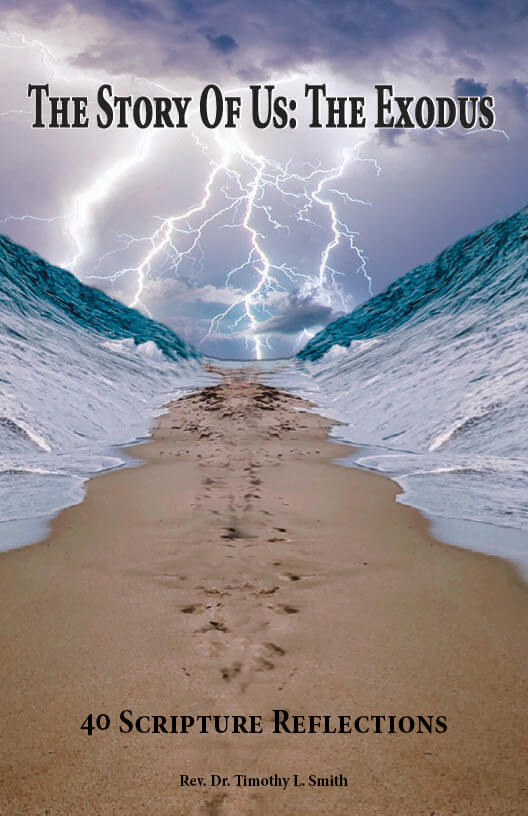PRAY
Show me Your glory, I pray.
Exodus 33:18
READ
When the entire nation had finished crossing over the Jordan, the LORD said to Joshua: “Select twelve men from the people, one from each tribe, and command them, ‘Take twelve stones from here out of the middle of the Jordan, from the place where the priests’ feet stood, carry them over with you, and lay them down in the place where you camp tonight.’” Then Joshua summoned the twelve men from the Israelites, whom he had appointed, one from each tribe. Joshua said to them, “Pass on before the ark of the LORD your God into the middle of the Jordan, and each of you take up a stone on his shoulder, one for each of the tribes of the Israelites, so that this may be a sign among you. When your children ask in time to come, ‘What do those stones mean to you?’ then you shall tell them that the waters of the Jordan were cut off in front of the ark of the covenant of the LORD. When it crossed over the Jordan, the waters of the Jordan were cut off. So these stones shall be to the Israelites a memorial for ever.” The Israelites did as Joshua commanded. They took up twelve stones out of the middle of the Jordan, according to the number of the tribes of the Israelites, as the LORD told Joshua, carried them over with them to the place where they camped, and laid them down there. (Joshua set up twelve stones in the middle of the Jordan, in the place where the feet of the priests bearing the ark of the covenant had stood; and they are there to this day.)
Joshua 4:1-9
The Exodus story is built on a foundation of memory. In his masterwork on the subject of Israel and memory, Zakhor: Jewish History and Jewish Memory, historian Yosef Haim notes that the Hebrew word for remember, zakhor, is repeated nearly 200 times in the Hebrew Scriptures: its purpose is to make the past present. For the Hebrews to remember means more than merely recalling something in the past, but suggests focusing the mind on something in the present. By this we remember a new future!
Israel’s calendar is thus filled with remembrances of the past; all of the feast days were meant to be reminders of past events. Weekly they were to keep the Sabbath, keeping it holy, recalling they were once slaves in Egypt (Exodus 20:8; Deuteronomy 5:15). At the end of the 40 years in the Wilderness, Moses says: “Remember the days of old, consider the years long past; ask your father, and he will inform you; your elders and they will tell you” (Deuteronomy 32:7). In Jerusalem, the history museum at Yad Vashem (“A Monument and a Name”) is guarded by the words “Forgetfulness leads to exile while remembrance is the secret of redemption.” This is why totalitarian regimes seek to erase memory of the past. And this is a reason for remembering our stories!
Thus, the entry of the Israelites into the Promised Land is to be celebrated with stones of remembrance. In the past the patriarch Jacob, whom God renamed “Israel”, often set up a stone of remembrance, commemorating experiences with God (Genesis 28:18; 31:45-47; 35:14). Later in history, when God rescued the Israelites from the Philistines, Samuel also set up a stone, calling it “Ebenezer” (“stone of help”), saying, “Thus far the LORD has helped us” (1 Samuel 7:7-12). Visit a Jewish cemetery today and you will see little stones put on graves for the purpose of remembering.
In today’s scripture God directs that upon crossing over the Jordan two memorials of stones be set up. A representative of each of the twelve tribes is to take a large stone and set it up where the people first stood in the Promised Land. Then Joshua sets up twelve stones, one for each tribe, marking the spot in the riverbed where the priests stood with the ark while the people crossed over.
The two memorials of grey river stone are to be a “sign” to all generations telling of God’s great salvation. So when children ask, “What do these stones mean to YOU?” parents will get to tell them! They will recall for their children how once the waters of the Jordan were cut off by the presence of the Lord in the Ark of the Covenant. By these two stone memorials “all the peoples of the earth may know that the hand of the LORD is mighty” (Joshua 4:24).
Generations later a psalmist takes up the mantle of remembering the Lord’s great acts: “We will tell to the coming generation the glorious deeds of the LORD, and his might and the wonders he has done…that the next generation might know them, the children yet unborn, and rise up and tell them to their children, so that they might set their hope upon God” (Psalm 78:4b-5, 6-7a).
Those two memorials of river stones forever preach the duty of remembering, and the danger of forgetting, the wonders God has done.
The words at the Yad Vashem memorial are surely right! “Remembrance is the secret of redemption.” The cultivation of thankful remembering is a very large part of our personal Exodus stories.
REFLECT
- Take a few moments to remember and write some spiritual milestones in your life. Have you had a ‘Red Sea’ parting, a ‘manna’ in the wilderness, a ‘tent of meeting’ experience, etc.?
- Psalm 107:2 commands: “Let the redeemed of the LORD say so…” Whom might you tell what the Lord has done for you?



